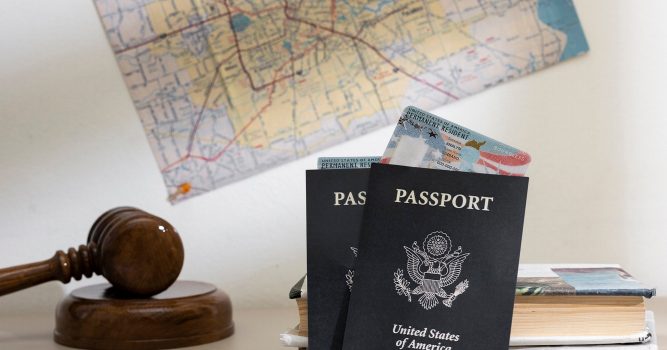
Introduction:
In the heart of the immigration debate, Texas Senate Bill 4 (SB4) emerged as a focal point, sparking a legal showdown that reverberated across the Lone Star State. This article delves into the complexities surrounding SB4, decoding the legal battle that unfolded and its profound implications on immigration policies and discourse.
Origins of SB4: A Controversial Immigration Legislation:
The roots of SB4 trace back to the political landscape of Texas, where concerns over immigration enforcement fueled the push for stricter legislation. In 2017, the Texas Legislature passed SB4, a controversial law that sought to empower local law enforcement to inquire about the immigration status of individuals during routine interactions. The bill faced immediate backlash from advocacy groups, immigrant communities, and even some law enforcement agencies.
Key Provisions of SB4: Navigating the Legal Landscape:
SB4’s key provisions empowered law enforcement officers to question the immigration status of individuals detained or arrested, even during routine traffic stops. It also mandated cooperation with federal immigration authorities and imposed penalties, including fines and removal from office, for officials who failed to comply. The legal landscape surrounding SB4 became intricate as constitutional challenges emerged. Critics argued that the law violated the Fourth Amendment’s protection against unreasonable searches and seizures and the Supremacy Clause, asserting that immigration enforcement is a federal, not state, responsibility.
Legal Challenges: The Battle in Courts Begins:
The ink had barely dried on SB4 when legal challenges were mounted. Several Texas cities, including Houston, Austin, and San Antonio, joined forces with civil rights organizations to contest the constitutionality of the law. The courtroom became the battleground where the fate of SB4 would be determined. Advocates argued that SB4 could lead to racial profiling, discouraging immigrants from reporting crimes or cooperating with law enforcement out of fear of deportation. Proponents of the law, however, insisted that it was a necessary tool for ensuring public safety and enforcing immigration laws.
Court Decisions and Appeals: Shaping the Legal Narrative:
The legal narrative surrounding SB4 evolved as courts weighed in on its constitutionality. In 2017, a federal district court partially blocked the law, preventing some provisions from taking effect. However, the legal saga was far from over, as the case made its way through appeals. In 2018, the U.S. Court of Appeals for the Fifth Circuit upheld the majority of SB4, stating that some provisions could be implemented. The legal tug-of-war continued, with subsequent appeals and challenges, shaping the way immigration laws were enforced within the state.
Impact on Communities: Beyond the Courtroom Drama:
While the courtroom drama unfolded, the impact of SB4 extended beyond legal battles. Immigrant communities faced increased anxiety and fear of deportation, leading to a chilling effect on reporting crimes and engaging with law enforcement. Local law enforcement agencies grappled with the delicate balance of maintaining public safety while attempting to rebuild trust with immigrant communities.

Comparative Analysis: SB4 and National Immigration Policies:
To fully understand SB4’s significance, a comparative analysis with national immigration policies is essential. SB4 reflected a state-level response to perceived gaps in federal immigration enforcement. Its legal battles and subsequent rulings underscored the ongoing national debate over the role of states in shaping immigration policies.
Table: Key Points in the Legal Battle Over SB4 Immigration Law
| Aspect | Description |
|---|---|
| Origins of SB4 | The legislation emerged in Texas in response to concerns over immigration enforcement, sparking a contentious debate. |
| Key Provisions of SB4 | Empowered law enforcement to inquire about immigration status, mandated cooperation with federal authorities, and imposed penalties for non-compliance. |
| Legal Challenges | Various stakeholders, including cities, advocacy groups, and individuals, contested the constitutionality of SB4, alleging violations of the Fourth Amendment. |
| Court Decisions and Appeals | The legal battle unfolded in multiple stages, with courts partially blocking and upholding SB4, shaping the way immigration laws were enforced within the state. |
Conclusion:
As the legal dust settled, SB4 left an enduring mark on Texas’s immigration landscape. The legal battle over SB4, while complex and contentious, offered a glimpse into the broader challenges and debates surrounding immigration policies in the United States. By decoding the intricacies of SB4, this article aims to provide a comprehensive understanding of the legislative landscape and its far-reaching repercussions, offering readers insight into the intersection of law, politics, and immigration in the Lone Star State.










